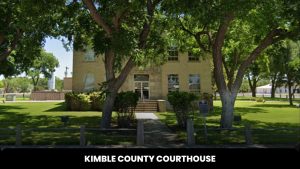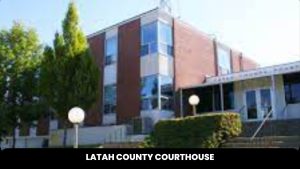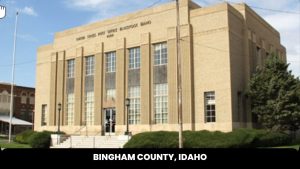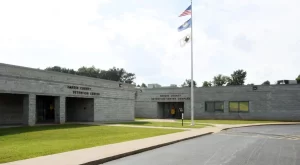US District Courts
Introduction to US District Courts
Definition and Role of District Courts
US district courts are the general trial courts of the federal court system. There are 94 federal judicial districts, each with a district court authorized by Congress in certain states and territories. District courts handle both civil and criminal matters that fall under federal jurisdiction. Their role is to conduct trials, hold hearings, resolve disputes, and determine guilt or innocence in federal cases. District courts are the starting point for any case that will be heard in federal courts.
Organization and Jurisdiction of District Courts
District courts are organized into 12 regional circuits, such as the Ninth Circuit in the western US or the Second Circuit in the northeast. District court boundaries usually follow state lines. Larger states like California have multiple districts, while some smaller states only have one. There are also territorial districts for places like Guam and Puerto Rico. The district courts have jurisdiction over any matter that involves a question of federal law or the US Constitution, or where the US Government is a party. This includes federal crimes, bankruptcy, patent cases, admiralty law, and lawsuits between citizens of different states.
Judges and Staff of District Courts
District court judges are appointed by the President and confirmed by the Senate to lifetime terms. Most cases are handled by a single district judge, while some criminal cases may be heard by three-judge panels. District judges are assisted by magistrate judges and bankruptcy judges, as well as a clerk of court, court reporter, bailiff, and other administrative staff. The US Attorney’s Office in each district handles prosecution of federal crimes. District courts also have panel of citizens available to serve on juries when required.
District Court Operations and Procedures
Filing a Case in District Court
To initiate a civil case in district court, the plaintiff files a complaint with the court clerk, pays a filing fee, and serves the defendant with a summons. For criminal cases, the US Attorney files an indictment obtained from a grand jury. Bankruptcy cases begin with a petition filed by the debtor. Filing a complaint or indictment is the first step in starting a new case in district court.
Assigning Cases to Judges
Random Case Assignment
Most district courts use a random procedure to assign new cases to judges. This ensures fairness and neutrality in the selection process. Some courts use an automated system while others draw judge’s names out of a “wheel.” The method varies by district.
“Wheel” System
In the wheel system, the clerk puts cards with each judge’s name into a container and randomly pulls one out to select the judge for a new civil case. This prevents any favoritism in judge assignment. Criminal cases may be assigned based on which judge is handling the ongoing grand jury that returned the indictment.
Pretrial Proceedings and Motions
Before a trial begins, the parties in a case engage in discovery, share relevant documents, take depositions, and file pretrial motions. Pretrial motions may seek to dismiss the case or challenge evidence admissibility. Judges resolve disputes over evidence and motions prior to trial. Settlement conferences may also be held. The judge sets the schedule for completing pretrial activities.
Trial Proceedings
District court trials generally involve six steps: jury selection, opening statements, presentation of evidence, closing arguments, jury deliberations, and the verdict. Witnesses testify and lawyers present arguments to the jury (or judge in a bench trial). The jury then deliberates in private and returns a verdict. If the defendant is found guilty in a criminal trial, the judge will also impose a sentence.
Jury Selection and Deliberations
Attorneys question potential jurors to select a fair, unbiased jury. The jury is sworn in, hears instructions from the judge, and delivers a unanimous verdict unless otherwise stipulated. Juries determine guilt or liability based solely on the evidence presented at trial. All deliberations take place in private. If the jury is unable to reach a verdict, the judge may declare a mistrial.
Types of Cases Heard by District Courts
Civil Cases
Federal Question Jurisdiction
If the case arises under federal law, the Constitution, or treaties, the district court has jurisdiction. Federal question cases might involve civil rights, employment discrimination, consumer protection, environmental laws, etc.
Diversity Jurisdiction
If the parties are from different states and meet amount in controversy requirements, district courts may hear state law claims under their diversity jurisdiction. Common diversity cases include personal injury, medical malpractice, and contract disputes.
Criminal Cases
Prosecution by US Attorneys
Each federal district has a US Attorney who prosecutes federal crimes, including drug offenses, financial fraud, terrorism, organized crime, child exploitation, and civil rights violations. They represent the United States in all criminal prosecutions.
Sentencing
For crimes carrying over one year imprisonment, the judge determines sentences based on Federal Sentencing Guidelines. Sentences may include prison time, fines, community service, probation, and restitution.
Bankruptcy Cases
District courts handle bankruptcy filings by individuals and businesses seeking debt repayment plans or asset liquidation under protection of the bankruptcy court. Judges resolve claims by creditors and oversee bankruptcy trustees.
Appeals from Administrative Agencies
Parties can appeal final decisions by federal agencies on issues like immigration, social security benefits, and veterans benefits. The district court reviews the agency’s decision.
Unique Features and Differences Between District Courts
Caseloads and Workloads
Caseloads vary significantly between districts based on factors like population, businesses, crime rates, and Vacant judgeships. Urban districts tend to have heavier caseloads and busier court calendars. Rural districts may be less congested.
Local Rules and Practices
Each district can adopt its own local rules to handle administrative and procedural matters not covered by Federal Rules. This allows customization based on local legal culture. Local rules impact filing requirements, motion practice, attorney discipline, etc.
Facilities and Resources
Older courthouses in downtowns tend to be more ornate, with newer ones having more modern designs. Budgets impact court staffing, technology, and resources. Rural districts may have fewer judges handling wider geographic areas.
Statistics and Data on District Courts
Total Number of District Courts
There are 94 federal judicial districts including at least one district in each state, as well as District of Columbia and territorial courts. The most populous state, California, has four districts while smaller states have just one each.
Annual Filings and Terminations
In 2021, 370,738 civil and criminal cases were filed in district courts. In that same year, 375,148 pending cases were terminated. The busiest district courts can receive over 10,000 new case filings per year.
Pending Caseloads
As of March 2022, there were 394,397 total pending cases in all district courts nationwide. This pending caseload increases with new filings and decreases as pending cases are resolved. The pace of litigation impacts the size of the pending caseload.
Trial Rates
Only about 2% of federal civil cases go to trial, while over 90% of criminal defendants plead guilty rather than go to trial. However, district courts handle pretrial matters, sentencing, and motion practice even for cases not tried.
Conclusion and Summary
Key Takeaways
- District courts are the federal trial courts where both civil and criminal cases are filed and resolved.
- There are 94 districts organized into regional circuits and bounded by state lines.
- District court judges are appointed by the President and confirmed by the Senate.
- Cases go through pretrial proceedings, followed by jury selection and trial, if no settlement is reached.
- Caseloads vary based on urban/rural locations and types of cases prosecuted.
Importance of District Courts
District courts play a vital role as the gateway into the federal court system. They provide citizens with an impartial forum to resolve legal disputes and hold federal trials. By fairly administering justice, district courts uphold the rule of law. Their work impacts people’s rights, freedom, finances, and lives.
Frequently Asked Questions
How many district court judges are there?
There are currently 677 authorized federal district court judgeships nationwide. However, vacancies may mean the actual number is lower at any given time.
What qualifications must district court judges have?
District judges must be appointed by the President and confirmed by the Senate. They must be US citizens, have a law degree, and possess strong moral character and integrity. Prior experience as a judge, attorney, or law professor is valued.
Do district courts ever hold trials outside of the courthouse?
Yes, district judges can hold proceedings including trials at any location within their district. It is rare, but trials have been conducted at prisons, schools, armories, and even train stations.
Can a district judge declare a law unconstitutional?
Yes, in the course of proceedings and judgment, district judges can rule that a specific law or government action violates the US Constitution and is therefore invalid or unenforceable.
Are district court records and documents available to the public?
Yes, with limited exceptions, records of district court proceedings including motions, exhibits, testimony, and more are considered public records available for inspection or copying for a fee. Some sensitive documents may be sealed.





